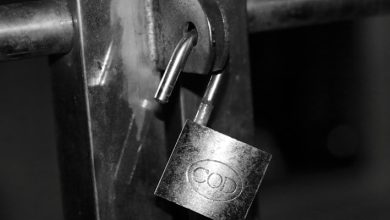The Importance of Regular Security Audits for Crypto Projects

- Understanding the Risks of Cyber Attacks in Crypto Projects
- How Regular Security Audits Can Help Prevent Breaches
- The Role of Security Audits in Safeguarding Investor Funds
- Challenges Faced by Crypto Projects Without Regular Audits
- Best Practices for Conducting Thorough Security Audits
- Ensuring Compliance with Regulatory Standards Through Audits
Understanding the Risks of Cyber Attacks in Crypto Projects
Crypto projects are susceptible to cyber attacks due to the nature of the digital assets involved. Hackers target these projects to steal funds, disrupt operations, or manipulate markets. Understanding the risks of cyber attacks is crucial for crypto projects to implement robust security measures.
One of the main risks of cyber attacks in crypto projects is the potential for theft of digital assets. Hackers can exploit vulnerabilities in the project’s code or infrastructure to gain unauthorized access to wallets or exchanges, leading to significant financial losses. Additionally, cyber attacks can result in the compromise of sensitive user data, damaging the project’s reputation and trust among investors.
Another risk of cyber attacks in crypto projects is the possibility of network disruptions. Hackers may launch distributed denial-of-service (DDoS) attacks to overwhelm the project’s servers, causing downtime and financial losses. These disruptions can also impact the project’s ability to process transactions efficiently, affecting user experience and market confidence.
Moreover, cyber attacks can be used to manipulate the price of digital assets in crypto projects. By exploiting vulnerabilities in trading platforms or decentralized exchanges, hackers can execute fraudulent transactions to artificially inflate or deflate prices. This manipulation can deceive investors and destabilize the project’s market value.
Given the high stakes involved in crypto projects, regular security audits are essential to identify and mitigate potential risks of cyber attacks. By conducting thorough assessments of the project’s code, infrastructure, and security protocols, vulnerabilities can be addressed proactively to prevent unauthorized access and data breaches. Implementing robust security measures is key to safeguarding digital assets and ensuring the trust and confidence of investors in crypto projects.
How Regular Security Audits Can Help Prevent Breaches
Regular security audits are essential for crypto projects to prevent breaches and ensure the safety of user funds and sensitive information. These audits involve a thorough examination of the project’s code, infrastructure, and security protocols to identify vulnerabilities and weaknesses that could be exploited by malicious actors. By conducting regular security audits, crypto projects can proactively address any potential security issues before they are exploited, reducing the risk of breaches and protecting the project’s reputation.
Security audits can help crypto projects identify and fix vulnerabilities in their code that could be leveraged by hackers to compromise the project’s security. By reviewing the codebase for potential security flaws, such as buffer overflows, SQL injection vulnerabilities, and insecure cryptographic algorithms, auditors can help crypto projects strengthen their defenses and prevent unauthorized access to sensitive data. Additionally, security audits can also help identify weaknesses in the project’s infrastructure, such as misconfigured servers or insecure network connections, that could be exploited by attackers.
In addition to identifying and fixing vulnerabilities, security audits can also help crypto projects improve their security posture by implementing best practices and security standards. Auditors can provide recommendations on how to secure the project’s code, infrastructure, and protocols, such as using encryption to protect data in transit and at rest, implementing multi-factor authentication to prevent unauthorized access, and conducting regular security training for team members. By following these recommendations, crypto projects can enhance their security defenses and reduce the risk of breaches.
Overall, regular security audits are a critical component of a comprehensive security strategy for crypto projects. By proactively identifying and addressing security vulnerabilities, crypto projects can protect user funds and sensitive information, maintain the trust of their community, and avoid the costly repercussions of a security breach. By investing in regular security audits, crypto projects can demonstrate their commitment to security and show their users that their safety is a top priority.
The Role of Security Audits in Safeguarding Investor Funds
Security audits play a crucial role in ensuring the safety of investor funds in the realm of crypto projects. These audits are essential for identifying vulnerabilities and weaknesses in the project’s security infrastructure, which could potentially be exploited by malicious actors. By conducting regular security audits, crypto projects can proactively address any security issues and prevent potential breaches that could result in the loss of investor funds.
Security audits also help to build trust and confidence among investors by demonstrating a commitment to maintaining a high level of security and safeguarding their funds. Investors are more likely to invest in projects that have undergone thorough security audits and have taken steps to address any identified vulnerabilities. This can ultimately lead to increased investment and a more robust and secure project overall.
Furthermore, security audits are often required by regulatory bodies and industry standards to ensure compliance with security best practices. Failing to conduct regular security audits can not only put investor funds at risk but can also result in regulatory penalties and damage to the project’s reputation. By prioritizing security audits, crypto projects can mitigate these risks and demonstrate their commitment to upholding the highest standards of security and integrity.
Challenges Faced by Crypto Projects Without Regular Audits
Crypto projects that do not undergo regular security audits face various challenges that can jeopardize the integrity and security of their systems. Without regular audits, these projects are more vulnerable to potential security breaches, hacks, and other cyber threats. This lack of oversight can result in significant financial losses for investors and users alike. Additionally, without audits, it is difficult to identify and address any vulnerabilities or weaknesses in the project’s code and infrastructure.
Furthermore, without regular audits, crypto projects may struggle to establish trust and credibility within the community. Investors and users are more likely to be wary of projects that do not prioritize security and undergo independent audits. This lack of trust can hinder the project’s growth and adoption, ultimately impacting its success in the long run.
In addition, without regular security audits, crypto projects may also face regulatory challenges. Many jurisdictions require projects to undergo security audits to ensure compliance with relevant laws and regulations. Failure to meet these requirements can result in legal consequences, fines, or even the shutdown of the project. Therefore, regular audits are essential for crypto projects to operate legally and avoid potential legal issues.
Best Practices for Conducting Thorough Security Audits
When it comes to ensuring the security of crypto projects, conducting thorough security audits is crucial. Here are some best practices to follow:
- Regularly review the project’s codebase to identify and address any vulnerabilities.
- Utilize automated tools to scan for common security issues and weaknesses.
- Engage with third-party security experts to perform in-depth penetration testing.
- Implement multi-factor authentication for all project access points to prevent unauthorized entry.
- Establish a bug bounty program to incentivize external security researchers to report any discovered vulnerabilities.
By following these best practices, crypto projects can strengthen their security posture and minimize the risk of potential cyber threats.
Ensuring Compliance with Regulatory Standards Through Audits
Ensuring compliance with regulatory standards through audits is a critical aspect of maintaining the integrity and security of crypto projects. Regular audits help to identify any potential vulnerabilities or weaknesses in the project’s security measures, allowing for timely remediation before any malicious actors can exploit them. By conducting thorough audits, crypto projects can demonstrate their commitment to transparency and accountability, which are essential for building trust with investors and users.
Audits also play a crucial role in ensuring that crypto projects are in compliance with regulatory requirements. Regulatory bodies are increasingly paying attention to the cryptocurrency space, and failure to comply with relevant regulations can result in severe penalties and reputational damage. By conducting audits regularly, crypto projects can identify any areas where they may be falling short of regulatory standards and take corrective action to address these issues proactively.
In addition to regulatory compliance, audits can also help crypto projects identify opportunities for improvement in their security practices. By analyzing the findings of audits, project teams can gain valuable insights into potential weaknesses in their security infrastructure and processes. This information can then be used to implement changes that strengthen the project’s overall security posture and better protect against cyber threats.
Overall, regular security audits are an essential tool for crypto projects looking to maintain the trust of their stakeholders, comply with regulatory requirements, and enhance their security practices. By investing in comprehensive audits and taking proactive steps to address any issues identified, crypto projects can demonstrate their commitment to security and position themselves for long-term success in the increasingly competitive cryptocurrency market.



